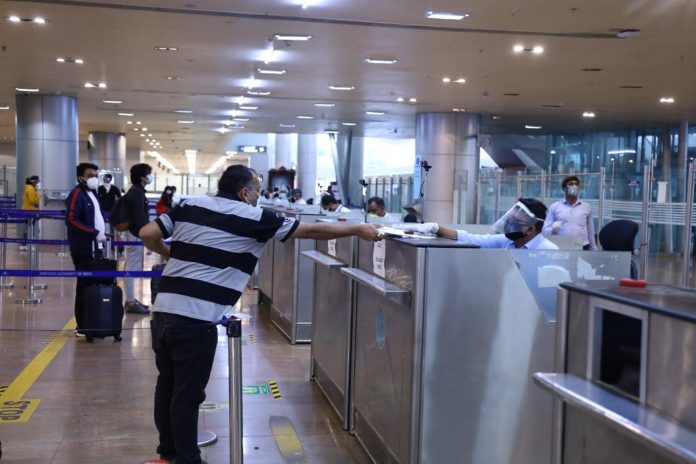
We are already seeing what the future of international air travel could look like judging by the evacuation flights by some airlines. The middle seat on aircraft kept vacant, thermal checks before airport entry, no bars, restaurants, plus restrictions on luggage, masks and social distancing while waiting for boarding or at the check-in counter which is protected by a glass screen. Endless checks on your medical history, what zone you reside in, your contacts, medical certificates, plus everything from tickets to visas and boarding passes done electronically.
Now, we have an authoritative study by Swiss-based air technology specialists SITA (Societe Internationale de Telecommunications Aeronautiques) which lays out a nightmare scenario for air travel. Their paper “A ‘New Normal’: The changing face of air transport post-COVID-19,” warns of the number of possible scenarios which will be stricter and more stressful than the ones introduced after the 9/11 attacks on America. One is that borders could suddenly close at the last minute if the virus suddenly causes a spike in cases and fatalities. There is also the possibility that travellers could be made to quarantine if new rules are introduced overnight, which will mean extended time required for holidays or business trips. It will play havoc with appointments or hotel bookings. As the report says: “If a country suddenly has a large spike or outbreak of the virus, then they could also choose to shut their borders to all international travellers altogether within hours.” The report also points to the possibility that “Passengers may have to pre-book meals and drinks at the airport as well as get given security time-slots to avoid queues”.
There will also be disinfectant booths for passengers—Hong Kong airport already has one—which kills all viruses, including the coronavirus, in just 40 seconds. New technology could become a common sight in the future at all airports as the industry looks into ways to ensure travellers feel safe post-pandemic. The report says that ‘Touch-less travel’ will accelerate as automation, contactless and self-service technology creates a “social distancing-friendly” passenger experience. Biometrics or digital IDs stored on phones and verified with facial recognition will be used to let passengers through security and onto aircraft. Airlines will constantly update your phone with information on your flight’s status and relevant border openings/closures to your journey. Other possible scenarios contained in the report include the possibility that leisure and business travel will be drastically reduced; as a result, airlines will be forced to reduce their fleets. Planning a trip will be more of a nightmare if some airlines shut down completely. Richard Branson’s Virgin Australia has already declared bankruptcy and other airlines could follow. Visas could be based on health issues rather than the usual factors. In fact, it is entirely possible that for your next trip you could be travelling on a health passport instead of the regular one. All those visa stamps will mean nothing in the new normal for international air travel.
Lead picture: UNI

